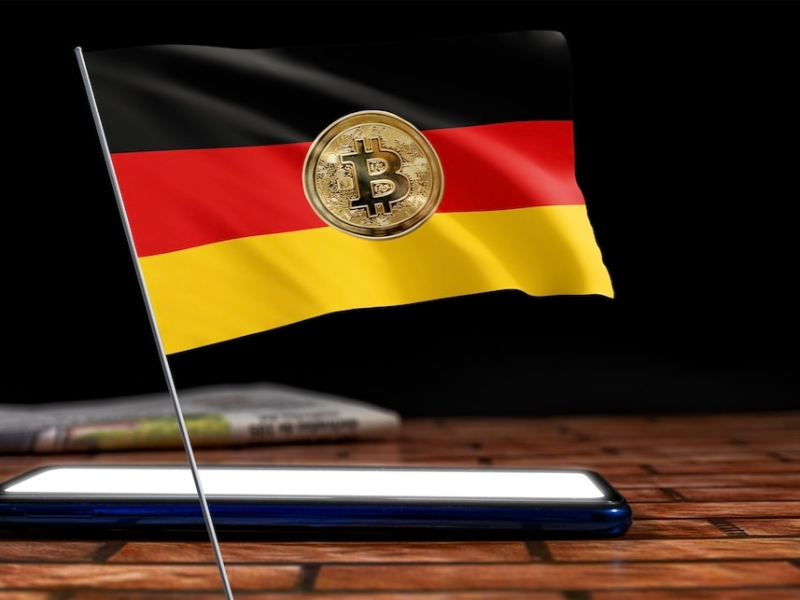- The German government, through the Bundeskriminalamt (Federal Criminal Police Office), has been selling hundreds of millions of dollars in bitcoin over several weeks, causing market declines.
- Bitcoin’s price fell to its lowest since February 2024, triggering $425 million in liquidations and sparking debate over whether the government should hold bitcoin as a “strategic reserve currency.”
OUR TAKE
In January 2024, police in the German state of Saxony seized nearly 50,000 bitcoins, valued at $2.2 billion, from the defunct piracy site Movie2k.to, transferring the funds to Germany’s Federal Criminal Police Office. For weeks, Germany has been selling hundreds of millions in bitcoin, a key factor in the cryptocurrency’s sell-off. Critics argue that selling bitcoin is short-sighted. Members of the German parliament believe the government should hold bitcoin as a strategic reserve currency, similar to gold, to safeguard against future economic uncertainties. The government’s bitcoin liquidation has negatively impacted investor sentiment.
—Sylvia Shen, BTW reporter
What happened
For several weeks, the German government has been selling bitcoins worth hundreds of millions of dollars through a wallet managed by the Bundeskriminalamt (BKA), the Federal Criminal Police Office. This significant liquidation has played a major role in the sharp decline in cryptocurrency prices.
In June, the BKA sold 900 bitcoins seized from a defunct movie piracy website, valued at nearly $52 million as of Monday. Last week, the government auctioned approximately $172 million worth of bitcoins. On Monday, German police sold an additional 2,739 bitcoins, valued at $155 million.
The government has begun transferring its cryptocurrency holdings to the exchanges Bitstamp, Coinbase, and Kraken.
In a major transaction, 3,500 bitcoins were sent to Flow Traders, 200 bitcoins to Kraken, 400 bitcoins to Bitstamp, and 400 bitcoins to Coinbase. Additionally, 700 bitcoins, valued at over $38.5 million, were transferred to the wallet “139Po,” which has previously received funds from the German government.
Also read: Argentine President Javier Milei supports bitcoin, free currency use
Also read: Trump’s bitcoin pivot: A political maneuver
Why it’s important
After these transactions, bitcoin’s price crashed during the European trading day, falling to $54,278 — its lowest price since February 2024, when it was $61,198.
This decline in bitcoin’s price led to extensive liquidations throughout the crypto market. Coinglass data shows that $425 million in leveraged positions were liquidated, including $216 million in long liquidations.
However, there is some disagreement regarding Germany’s decision to sell its bitcoin holdings.
Joana Cotar, a member of the German parliament, expressed her opposition to the government’s bitcoin sales in a post on X last month. She argued that instead of selling, the government should hold bitcoin as a “strategic reserve currency.”
Cotar stated that she has written to German Chancellor Olaf Scholz, Finance Minister Christian Lindner, and Saxony Minister President Michael Kretschmer, arguing that selling bitcoin is “not only not sensible, but counterproductive.”
For cryptocurrency investors, the sales of bitcoin in Germany are simply one issue. The payment of billions of dollars to creditors of the defunct Mt. Gox exchange, which filed for bankruptcy in 2014, is another factor putting pressure on cryptocurrencies.
According to CoinGecko, about 19.7 million bitcoins are in circulation, valued at $1.1 trillion. James Butterfill, head of research at CoinShares, told CNBC that while the sales are “relatively minor,” they have still “affected market sentiment,” increasing customers’ concerns.

